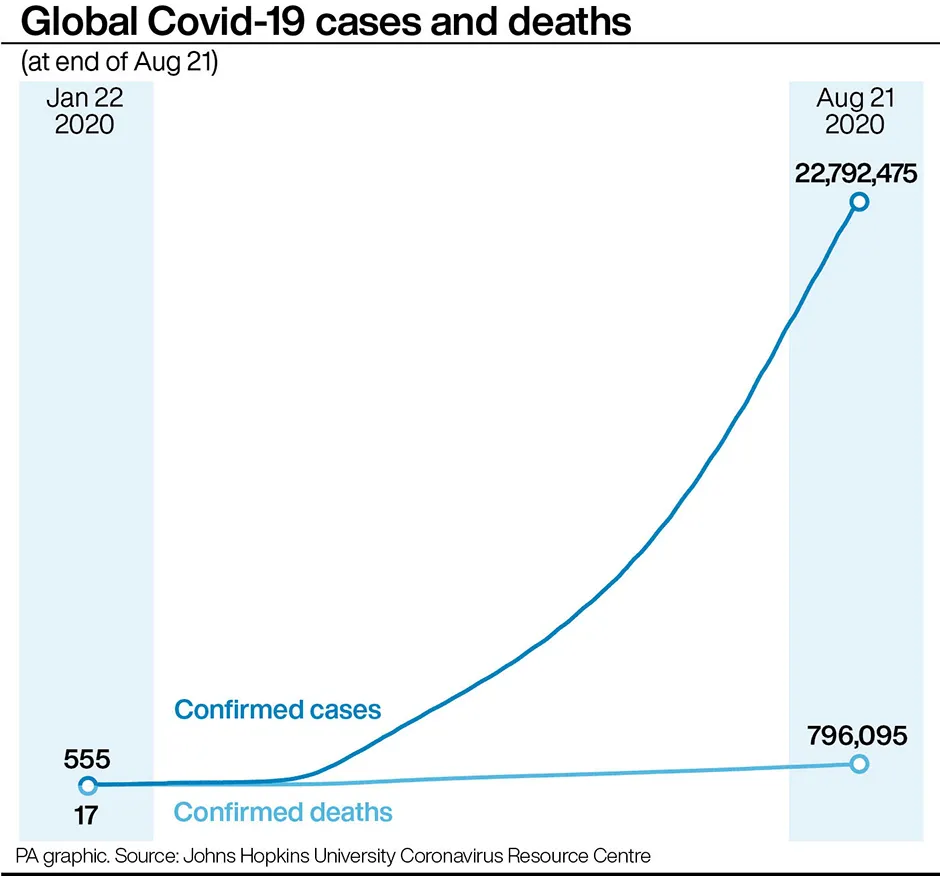COVID-19 will be present “forever” and people are likely to need regular coronavirus vaccines, a former chief scientific adviser has warned.
Professor Sir Mark Walport, who is a member of the government’s Scientific Advisory Group for Emergencies (Sage), said that, like flu, repeat inoculations will be required.
He told BBC Radio 4’s Today programme that the COVID-19 pandemic will be controlled by “global vaccination” but that it is not “going to be a disease like smallpox which could be eradicated by vaccination”.
Read the latest coronavirus news:
- Scientists think they’ve identified how COVID-19 causes patients to lose their sense of smell
- Spread of COVID-19 doesn't depend on what you sing, but how loud you sing it
“This is a virus that is going to be with us forever in some form or another and almost certainly will require repeated vaccinations,” he said.
“So, a bit like flu, people will need re-vaccination at regular intervals.”
The scientist also warned that it is “possible” the virus will get “out of control” again, but said more targeted measures can now be used instead of a generic lockdown.
His comments came after the head of the World Health Organisation said he hopes the coronavirus pandemic will be over within two years.

Tedros Adhanom Ghebreyesus said it took two years to overcome the Spanish flu in 1918, but that advances in technology could allow COVID-19 to be stopped in a “shorter time”.
Speaking in Geneva on Friday, he said: “Of course, with more connectiveness, the virus has a better chance of spreading.
“But, at the same time, we have also the technology to stop it, and the knowledge to stop it.”
Can I get the coronavirus from a parcel?
It’s hypothetically possible, but parcels pose a very small risk.
A US study found that the coronavirus can survive for up to 24 hours on cardboard (and paper is likely to be similar). So for the parcel to be contaminated, someone with COVID-19 would have had to touch or cough on your parcel within the past day.
The chances of this are low, but common sense advice would be to wash your hands with soap and water after opening the parcel, and then again after you’ve disposed of the packaging – especially if you or anyone else in your household is in one of the vulnerable groups.
The same study found that the virus can survive for up to three days on hard, shiny surfaces such as plastic and stainless steel – which is why door handles are particularly good vectors for the virus. So, if you receive anything packaged in plastic, such as takeaway deliveries, make sure to wash your hands after touching it, and especially before eating.
We don’t yet know how long the virus can survive on smartphone screens, but it’s likely to be up to three days. This means that you should ideally clean your phone with disinfectant wipes (Apple recommends 70 per cent isopropyl alcohol wipes), at least once a day.
Read more: